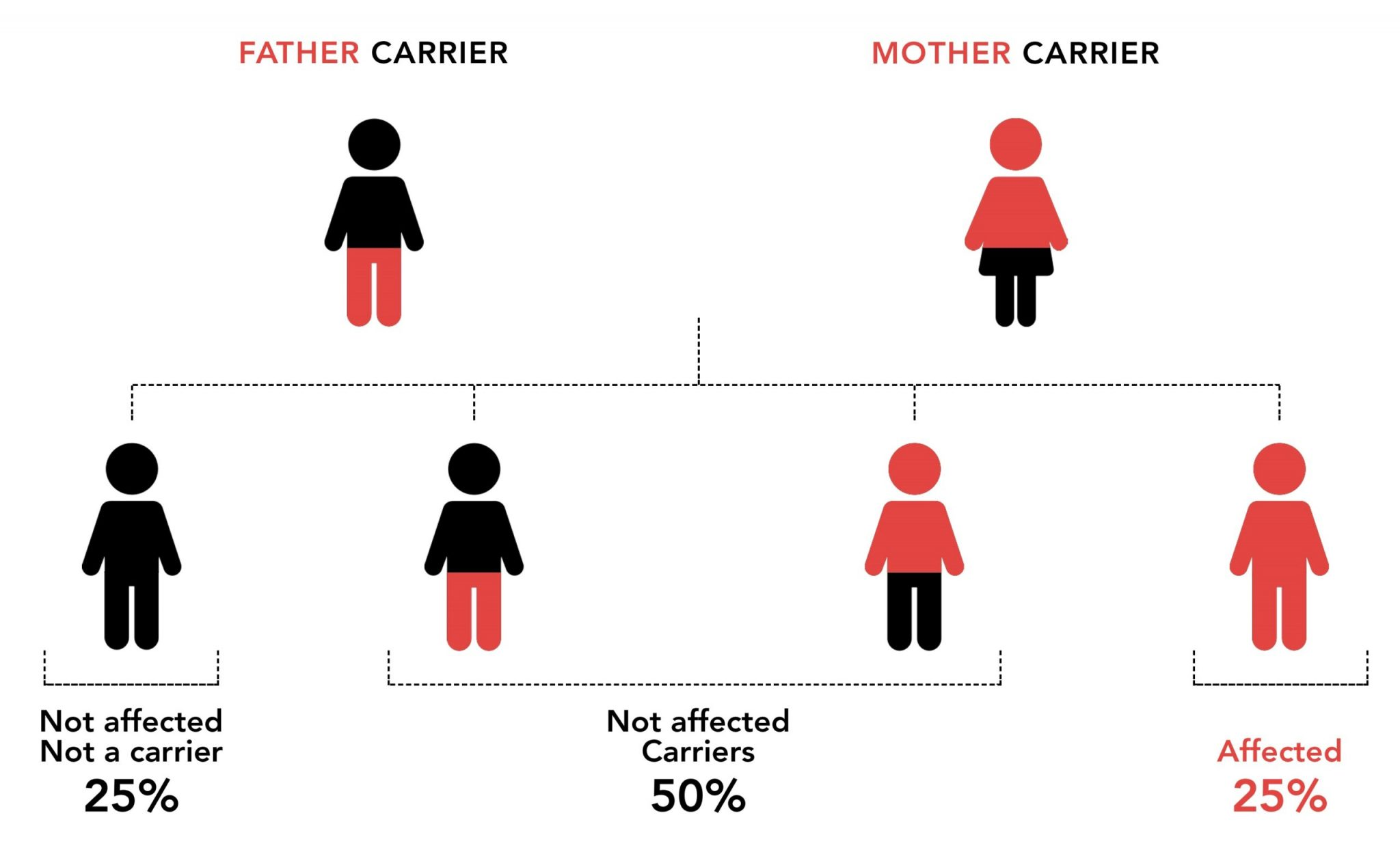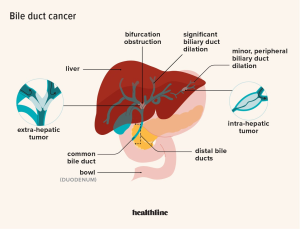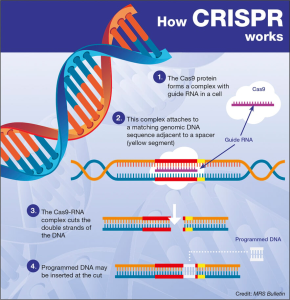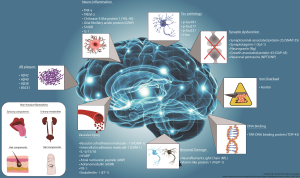
Treatable genetic disorders during pregnancy represent a groundbreaking advancement in maternal-fetal medicine, offering hope for families facing genetic risks. Recent research has revealed nearly 300 conditions that may be addressed before birth or within the first week of life, introducing a “treatable fetal findings list” that can significantly enhance prenatal care genetics. With the aid of genomic sequencing for prenatal diagnosis, healthcare providers can identify potential genetic abnormalities early on, facilitating timely intervention. This proactive approach not only aims to improve outcomes for the fetus but also reduces the long-term health burdens associated with such disorders. As pregnancy genetic testing becomes more sophisticated, the promise of fetal therapies for genetic disorders is beginning to reshape the landscape of maternal care and family planning.
During pregnancy, addressing manageable genetic conditions opens doors to innovative care strategies for expectant parents. The identification of treatable prenatal genetic conditions empowers families with the knowledge needed to make informed decisions about care options. By leveraging advanced techniques such as genomic analysis and pregnancy screening, healthcare professionals can pinpoint possible genetic disorders quickly and accurately. Early intervention and timely treatments can significantly alter the trajectory of these conditions, leading to better health outcomes for infants and reducing the risk of complications. As discussions around early intervention genetic conditions gain traction, it’s imperative that families are educated about the available fetal therapies and care pathways.
Understanding Treatable Genetic Disorders During Pregnancy
The recent research has spotlighted nearly 300 genetic disorders that can be effectively treated during pregnancy. This groundbreaking study showcases the potential for a ‘treatable fetal findings list,’ enabling healthcare professionals to guide expectant parents in understanding the genetic conditions that may be addressed prior to birth. This means that with modern prenatal care genetics, parents could explore early intervention options that may drastically improve outcomes for their unborn children, thus ushering in a new era of proactive healthcare.
By utilizing genomic sequencing for prenatal diagnosis, healthcare providers can identify conditions that require prompt attention. These detailed insights empower parents to make informed decisions based on accurate and actionable information, enhancing parental involvement in the health journey of their children even before they are born. Early detection exemplifies how cutting-edge techniques in pregnancy genetic testing can transform potential challenges into manageable care plans.
The Role of Genomic Sequencing in Prenatal Diagnoses
Genomic sequencing has revolutionized the realm of prenatal care, allowing for precise identification of genetic abnormalities that may affect a fetus. As highlighted in the recent study, these state-of-the-art tests can discern not only known genetic conditions but also incidental findings that could lead to serious health challenges. For instance, identifying a congenital heart defect through genomic sequencing means that medical professionals can formulate a plan of action even before the baby is born, potentially mitigating risks associated with late diagnoses.
The benefits of incorporating genomic sequencing in prenatal care extend beyond mere detection. It sets the stage for tailored fetal therapies that can be initiated immediately after birth or even in utero, significantly improving the prognosis for affected infants. This innovative approach underscores the essential role of early intervention for genetic conditions, ultimately redefining the pathway of care in obstetrics and pediatrics, while providing parents the reassurance that they are equipped to face potential health adversities.
Enhancing Treatment Options with Early Intervention Genetic Conditions
The findings from the study highlight the importance of expanding treatment options for genetic conditions that can be diagnosed early. With nearly 300 genetic disorders identified, families have unprecedented opportunities to address these issues preemptively. When healthcare providers are aware of treatable conditions, they can initiate therapies sooner, leading to improved health outcomes. This proactive stance can drastically alter the natural history of many diseases, ultimately aiding families in navigating complex genetic landscapes with enhanced support.
Incorporating early intervention strategies into the management of genetic conditions not only benefits the child’s immediate health but can also influence long-term development and quality of life. The earlier interventions are implemented, the more likely complications can be managed effectively. This shift towards a focus on prevention and intervention in the prenatal period signifies a monumental step towards better familial and healthcare outcomes in the landscape of genetics.
Ethical Considerations in Genetic Testing during Pregnancy
While the prospects of treating genetic disorders before birth are promising, ethical considerations must be taken into account. The revelation of so much information through pregnancy genetic testing can be overwhelming for expectant parents, leading to potential emotional distress or decision paralysis. Clear communication and support from healthcare teams is crucial to help navigate the complexities of testing results, and to empower parents to make informed decisions.
Moreover, it is essential for medical professionals to engage in discussions about the implications of not only what the tests reveal but also what they do not. This ensures families understand both the risks and benefits associated with undergoing genomic sequencing and prenatal diagnosis. A collaborative approach involving genetic counselors and obstetricians can provide a more comprehensive framework that addresses patient concerns while fostering informed decision-making regarding genetic intervention options.
Navigating New Health Information During Pregnancy
As prenatal genetic testing becomes increasingly prevalent, the challenge of processing new health information during pregnancy stands as a significant consideration for both parents and healthcare providers. The introduction of genetic findings can raise questions about the implications for the baby’s future health, family dynamics, and overall wellness. Thus, it’s crucial to ensure that support systems are in place that allows families to digest and respond to information constructively.
Healthcare teams must be equipped to assist families in understanding complex genetic terminologies and outcomes. This can involve setting up dedicated informational sessions or counseling services where parents can ask questions and gain clarity on their options regarding early interventions for treatable conditions. By fostering an environment of support, healthcare providers can help families navigate this potentially overwhelming landscape with confidence.
Advancements in Fetal Therapies for Genetic Disorders
The emergence of fetal therapies represents a critical leap forward in managing genetic disorders diagnosed during pregnancy. As the study emphasizes, timely intervention can mitigate the impacts of various conditions, enabling treatments that were once reserved for postnatal care to be administered prenatally. Such preemptive measures can greatly enhance the quality of life for affected infants and help prevent irreversible health impacts.
These advancements not only signify hope for many families but also herald a new approach in the fields of obstetrics and pediatrics, where managing genetic disorders is becoming increasingly proactive. The ability to treat conditions in utero illustrates the possible complexities and rewards of integrating cutting-edge technologies like genomic sequencing into standard prenatal care practices.
Impacts of Genetic Counseling on Families
Genetic counseling plays a pivotal role in supporting families facing a diagnosis of a genetic disorder during pregnancy. This multidisciplinary approach guides families through the process of understanding genetic testing results and outlining potential pathways for care. Genetic counselors help demystify the implications of various conditions, ensuring that families feel prepared to explore their options based on test results.
Moreover, this support extends beyond health information; it encompasses emotional and psychological aspects of dealing with genetic conditions. By offering targeted resources and emphasizing the importance of family discussions, genetic counselors can empower families, ensuring they are equipped with knowledge and support as they navigate new revelations regarding their child’s health.
Future Directions of Genetic Research and Intervention
The future of genetic research holds significant promise for the ongoing development of new treatments tailored to genetic disorders identified during pregnancy. As this study has shown, a collaborative approach that includes geneticists, obstetricians, and ethicists will be crucial in defining the path forward for prenatal treatments. Insights gleaned from current research will pave the way for the discovery of additional treatable conditions, potentially expanding the treatable fetal findings list in the years to come.
Continued advancements in genomic sequencing and other innovative technologies will likely contribute to refining existing treatment protocols, ensuring that families can make better-informed decisions. The emphasis on early intervention will become a cornerstone in prenatal medicine, ultimately transforming how we approach genetic disorders in both fetuses and newborns, while consistently advocating for family-centered care that addresses both medical and emotional needs.
Frequently Asked Questions
What are treatable genetic disorders during pregnancy?
Treatable genetic disorders during pregnancy are specific conditions that can be diagnosed and effectively managed either in utero or shortly after birth. These conditions have been identified through advanced prenatal care genetics techniques, allowing for timely medical interventions that improve fetal outcomes.
How does genomic sequencing prenatal diagnosis relate to treatable genetic disorders during pregnancy?
Genomic sequencing prenatal diagnosis plays a crucial role in identifying treatable genetic disorders during pregnancy. By analyzing the fetal genome, healthcare providers can detect potential genetic abnormalities early, enabling proactive management and timely interventions to improve health outcomes.
What are the benefits of early intervention for genetic conditions detected during pregnancy?
Early intervention for genetic conditions detected during pregnancy can significantly reduce the risk of morbidity and mortality. By identifying treatable genetic disorders, medical teams can implement therapies that may prevent irreversible harm, enhancing the overall health and quality of life for both the fetus and newborn.
Why is prenatal care genetics important for managing genetic disorders?
Prenatal care genetics is essential for managing genetic disorders as it provides expectant parents with critical information about potential health issues. This knowledge empowers them to make informed choices, including the possibility of early intervention fetal therapies that can significantly alter the trajectory of certain genetic conditions.
What role do fetal therapies play in treating genetic disorders during pregnancy?
Fetal therapies are innovative medical treatments developed to address genetic disorders diagnosed during pregnancy. These therapies can provide interventions such as medications, fluid management techniques, or surgical options that can significantly improve outcomes for fetuses identified with treatable genetic conditions.
What information can I expect from pregnancy genetic testing regarding treatable genetic disorders?
Pregnancy genetic testing can inform expectant parents about the presence of treatable genetic disorders, offering insights into potential health risks for the fetus. This testing can also reveal genetic predispositions that might warrant early interventions through targeted therapies or close monitoring post-birth.
How can healthcare providers support families facing treatable genetic disorders during pregnancy?
Healthcare providers can support families by offering comprehensive prenatal care genetics consultations, providing access to genomic sequencing tests, and coordinating with specialists in pediatric genetics. This collaborative approach ensures that families receive clear information and the best possible management options for treatable genetic disorders.
What ethical considerations arise from the identification of treatable genetic disorders during pregnancy?
The identification of treatable genetic disorders during pregnancy brings ethical considerations related to patient autonomy, the potential for overwhelm from medical information, and the implications of decision-making for interventions. Engaging with genetic counselors and ethicists is crucial to navigate these challenges and ensure families are supported throughout the process.
How can I learn more about the list of treatable fetal findings being suggested by researchers?
To learn more about the list of treatable fetal findings, interested parties can consult research published in trusted medical journals like the American Journal of Human Genetics, or discuss with their healthcare provider for guidance on the implications of such findings and how they relate to individual cases.
| Key Points |
|---|
| A study identifies 296 treatable genetic disorders during pregnancy or in the first week of life, improving diagnosis and treatment options. |
| Genomic sequencing aids in prenatal diagnostics by identifying genes linked to ultrasound abnormalities and other conditions. |
| Immediate postnatal treatments can prevent irreversible harm for fetuses diagnosed with genetic disorders. |
| The initiative aims to provide families with options for early intervention during pregnancy. |
| Ethical considerations include managing the overwhelming amount of information for patients and ensuring effective communication within healthcare teams. |
Summary
Treatable genetic disorders during pregnancy are becoming increasingly identifiable through the latest research findings, which emphasize the potential for early intervention to improve health outcomes. The study conducted by researchers from Harvard Medical School and Duke University School of Medicine highlights the importance of timely detection of these conditions, enabling families to manage and treat disorders that may otherwise lead to serious health issues. As genomic sequencing continues to advance, it offers significant promise in prenatal care, allowing for life-changing decisions that can benefit both the mother and the fetus. However, it is crucial to navigate the ethical complexities and support families adequately in this evolving landscape of prenatal genetic testing.



